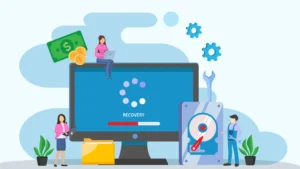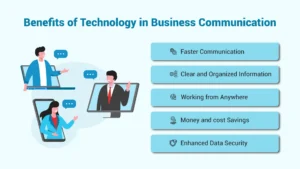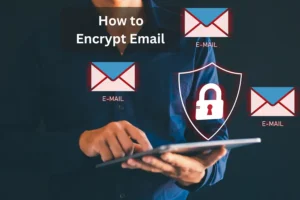Cybercriminals are constantly finding new ways to break into computer networks. From phishing e-mails to automated password attacks and malicious code hidden on legitimate websites, their tactics are smarter than ever. Knowing these tricks is the first step to protecting your business from becoming an easy target.
1) Trick 1: We’re masters at getting you to click on fake e-mails.
One of the most common ways hackers gain access to computer networks and devices is via phishing e-mails. Gone are the days when you could easily spot a spammer’s e-mail because of its poor English, typos and punctuation mistakes – attacks are getting more and more sophisticated.
Why phishing e-mails look so legitimate
That’s because cybercriminals have access to the same cutting-edge online marketing tools that legitimate companies have, giving them the ability to send highly targeted messages that look completely legitimate from sources you trust.
Ready for the next step? Dive into our comprehensive guide on “Don’t Open That Résumé So Fast?!“.
How hackers trick you through personalized details
These e-mails often use your name, and your professional title and may even reference a group you belong to. Further, if you click on the e-mails or respond, you’re inviting a hacker into your network that bypasses a firewall and antivirus software.
How to protect yourself from phishing e-mails
The only way to avoid getting snared by a phishing e-mail is to NEVER click on, open or respond to any e-mail requesting personal information, passwords, login details, etc. Always go directly to the site.
2) Trick 2: We automate attacks that work around the clock.
Hackers have software programs that systematically test millions of possible passwords to break into your PC. Easy-to-guess passwords are worthless against the power, automation and sophistication of these super-apps that will constantly hammer away at guessing your password.
Strong password protection is essential
Because of this, make sure your passwords contain both uppercase and lowercase letters, at least one number and special characters – and NEVER use easy-to-guess passwords like “letmein” or “password.”
Continue your journey: explore more about “Why and How to Get Password-Smart NOW!” in this related article.
3) Trick 3: We can use legitimate web sites to attack you.
A growing number of cyberattacks are coming via “drive-by” download, where a hacker gains access to a legitimate, honest business website (or sets up a site that looks legit on every level) but has malicious code installed called an “exploit kit.”
How exploit kits work
An exploit kit can discover a vulnerability fast by probing your operating system, browser and the software you have installed (like a PDF reader or video player) to find a way to access your PC or network.
Why updates and patches matter
If you (or your IT company!) aren’t applying regular security updates, you are unprotected against these exploits.
Other Common Hacker Tactics
While these are common ways hackers gain access, there are dozens of other more straightforward ways hackers gain access if you’re not diligently updating and patching your network, maintaining an up-to-date firewall, antivirus and spam-filtering unified threat-management system. The days of “That could never happen to me” are gone.
Get Peace of Mind with a Free Assessment
If you want peace of mind that YOUR business isn’t a “sitting duck” to hackers, call us for a free assessment at 317-857-0150. You’ll discover if you truly are protected from common hacker attacks and what you can do now to avoid being an easy target. Call today at 317-857-0150.
Author
-

Jay S. Allen, MCP, MCSA, MCSE, MCSE+ Security, is an experienced IT professional with more than 20 years in the industry. He specializes in delivering enterprise-level cybersecurity and IT support solutions tailored to small and mid-sized businesses. Through Techno Advantage, Jay is dedicated to helping organizations strengthen their security posture and achieve greater efficiency through smart, scalable technology solutions.











